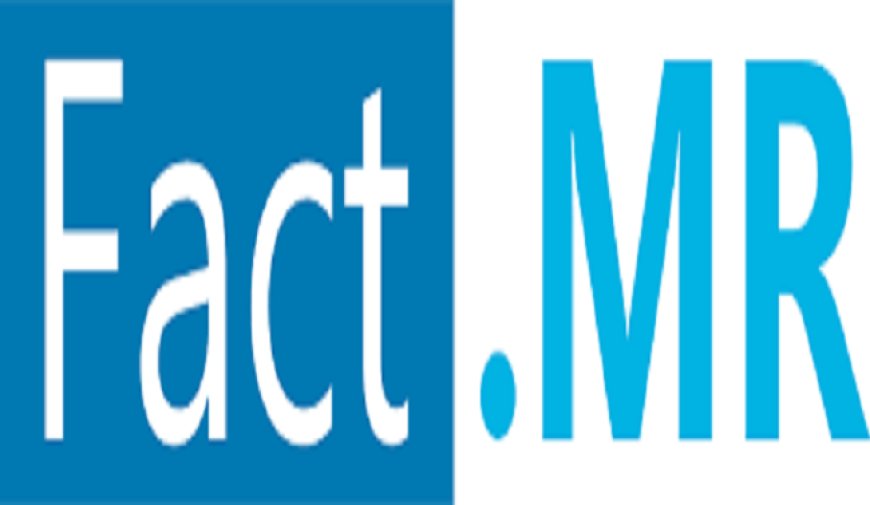Efforts to Reduce Food Waste Propel Demand for Recycling Machines Globally
The global food waste recycling machine market was valued at USD 2.7 billion in 2022 and is projected to exceed USD 5.2 billion by 2032, growing at a CAGR of 6.6% from 2022 to 2032.

The global food waste recycling machine market was valued at USD 2.7 billion in 2022 and is projected to exceed USD 5.2 billion by 2032, growing at a CAGR of 6.6% from 2022 to 2032.
The food waste recycling machine market is evolving rapidly as industries and municipalities seek more sustainable solutions for managing food waste. Food waste recycling machines are designed to reduce the environmental impact of food waste by converting organic materials into valuable resources such as compost, biogas, or animal feed. These machines are increasingly being adopted in households, commercial kitchens, restaurants, and food processing plants. They offer an efficient and environmentally friendly alternative to traditional waste management methods like landfilling and incineration. As global food waste continues to rise, the demand for technologies that can reduce, recycle, and repurpose this waste is growing. With governments and organizations worldwide setting stricter regulations around waste disposal, the market for food waste recycling machines is expected to continue expanding, contributing to a circular economy model.
Market Insights
The food waste recycling machine market is gaining traction due to several key factors, including the growing global population, urbanization, and increased consumer awareness of food waste’s environmental impact. These machines offer various solutions for recycling food waste, from small, compact systems designed for home use to larger, industrial-grade machines for commercial applications. The technology behind these machines is also becoming more advanced, with innovations in composting, anaerobic digestion, and dehydration methods. Composting machines, for instance, accelerate the breakdown of organic waste into nutrient-rich soil, while anaerobic digesters convert food waste into biogas that can be used for energy production. The versatility of food waste recycling machines, their ease of use, and their ability to address environmental concerns are driving their adoption across residential, commercial, and industrial sectors.
Another insight into the market is the increasing emphasis on reducing food waste at the source. Many recycling machines are now being integrated into smart kitchens and industrial operations to help users monitor and control waste generation. These machines can be paired with advanced technologies such as sensors and AI algorithms to track waste types, quantities, and even recommend strategies for reducing waste generation. Additionally, the ability to generate renewable energy or compost from food waste adds significant value, as it reduces reliance on landfills and helps close the loop in the circular economy.
Market Outlook
The outlook for the food waste recycling machine market is highly positive. With the rise in awareness about the environmental, economic, and social impacts of food waste, more businesses and households are turning to food waste recycling technologies as part of their sustainability initiatives. The market is poised for continued growth, driven by regulatory pressures, technological advancements, and the need for more sustainable waste management solutions. Governments around the world are introducing policies to promote waste diversion from landfills, and industries are becoming more committed to reducing their environmental footprints.
The future of the market will likely see a shift toward even more energy-efficient and eco-friendly recycling machines. Emerging technologies, such as machine learning and the Internet of Things (IoT), will enable better waste tracking, more precise recycling, and enhanced user control. Furthermore, food waste recycling solutions are expected to become increasingly affordable and accessible, with smaller-scale machines designed for individual use becoming more common in households. This will expand the market beyond commercial and industrial sectors to include residential consumers, contributing to the widespread adoption of food waste recycling systems.
List of Key Companies Profiled in The Report
- BioHiTech Global
- Emerson Electric Co.
- KCS Engineering
- Oklin International
- Enic Co. Limited
- Hungry Giant Recycling
- Others
Recent Industry News
In recent industry news, several major players in the food waste recycling machine market have introduced innovative solutions aimed at improving the efficiency of waste management. For example, some companies have launched new models that feature energy-efficient technologies, reducing the carbon footprint of recycling operations. These innovations include machines that can process food waste faster and with less energy consumption. In addition, some manufacturers are integrating IoT technology into their machines, allowing for real-time monitoring of waste collection and processing.
There has also been a rise in partnerships between food waste recycling machine manufacturers and municipal waste management organizations. These collaborations are focused on improving waste diversion programs and integrating food waste recycling solutions into larger-scale municipal waste infrastructure. Furthermore, some food waste recycling companies are developing partnerships with food producers and retailers to create closed-loop systems, where food waste generated during production or sale is recycled and reused in the form of compost or biogas.
Notable Developments
Notable developments in the food waste recycling machine market include advancements in both machine design and functionality. For example, several new models of food waste recycling machines are now capable of handling a broader range of food waste, including more complex organic materials such as bones, shells, and larger food scraps. These machines also feature improved odor control mechanisms, making them more suitable for residential and commercial use. Additionally, manufacturers are focusing on making machines that are smaller, quieter, and more efficient, making them ideal for kitchens and food production facilities with limited space.
Competitive Landscape
The global food waste recycling machine market is highly competitive, with many regional and domestic players adopting strategies like mergers, acquisitions, expansions, and collaborations. Leading companies focus on product development to enhance market presence. For example, Maeko introduced a machine in 2021 that transforms food waste into bio-organic compost in one day, while WLabs launched Zera Food Recycler, turning food waste into fertilizer in under 24 hours.
What's Your Reaction?
 Like
0
Like
0
 Dislike
0
Dislike
0
 Love
0
Love
0
 Funny
0
Funny
0
 Angry
0
Angry
0
 Sad
0
Sad
0
 Wow
0
Wow
0
























































